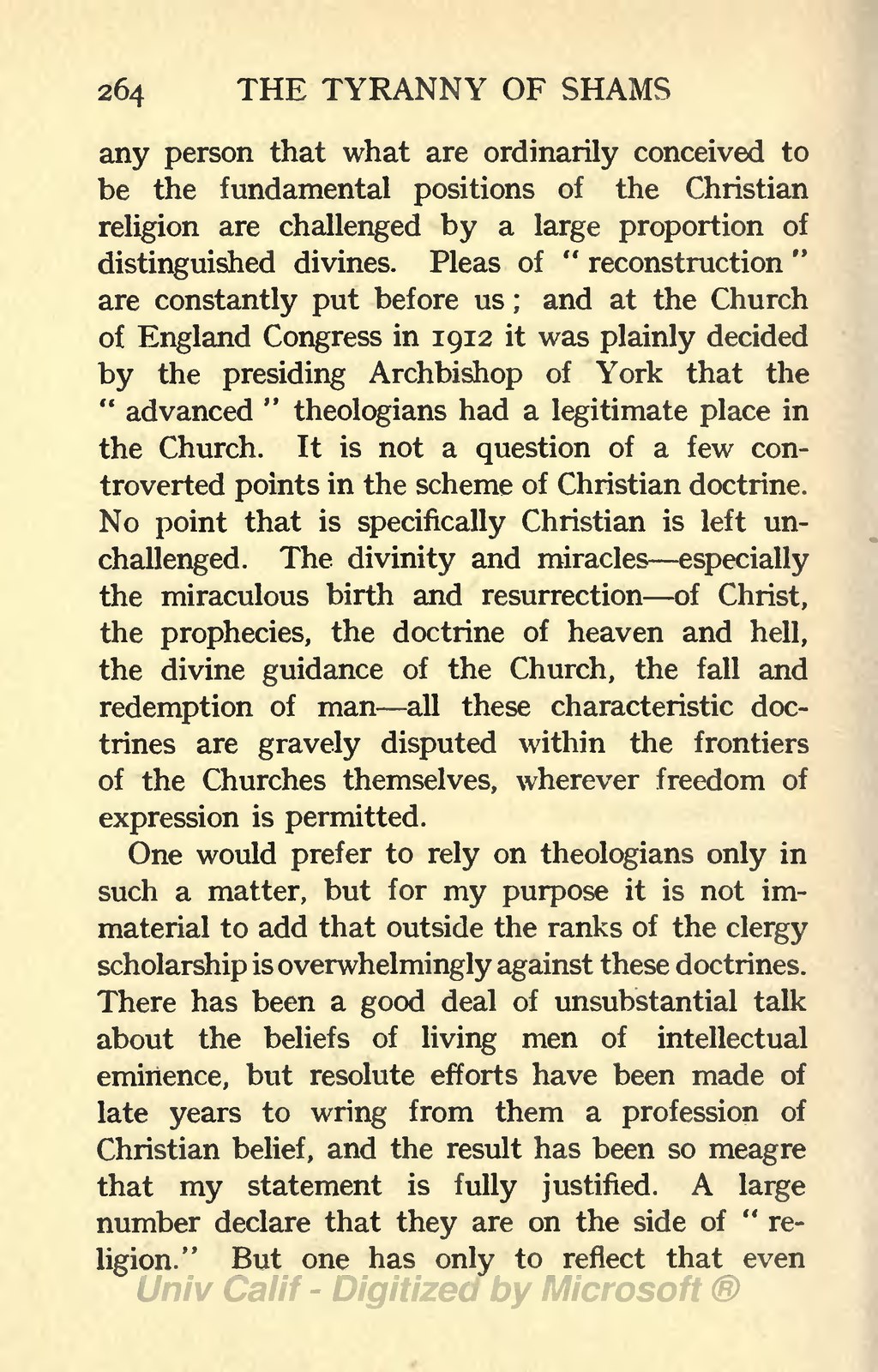any person that what are ordinarily conceived to be the fundamental positions of the Christian religion are challenged by a large proportion of distinguished divines. Pleas of “reconstruction” are constantly put before us; and at the Church of England Congress in 1912 it was plainly decided by the presiding Archbishop of York that the “advanced” theologians had a legitimate place in the Church. It is not a question of a few controverted points in the scheme of Christian doctrine. No point that is specifically Christian is left unchallenged. The divinity and miracles—especially the miraculous birth and resurrection—of Christ, the prophecies, the doctrine of heaven and hell, the divine guidance of the Church, the fall and redemption of man—all these characteristic doctrines are gravely disputed within the frontiers of the Churches themselves, wherever freedom of expression is permitted.
One would prefer to rely on theologians only in such a matter, but for my purpose it is not immaterial to add that outside the ranks of the clergy scholarship is overwhelmingly against these doctrines. There has been a good deal of unsubstantial talk about the beliefs of living men of intellectual eminence, but resolute efforts have been made of late years to wring from them a profession of Christian belief, and the result has been so meagre that my statement is fully justified. A large number declare that they are on the side of “religion.” But one has only to reflect that even
